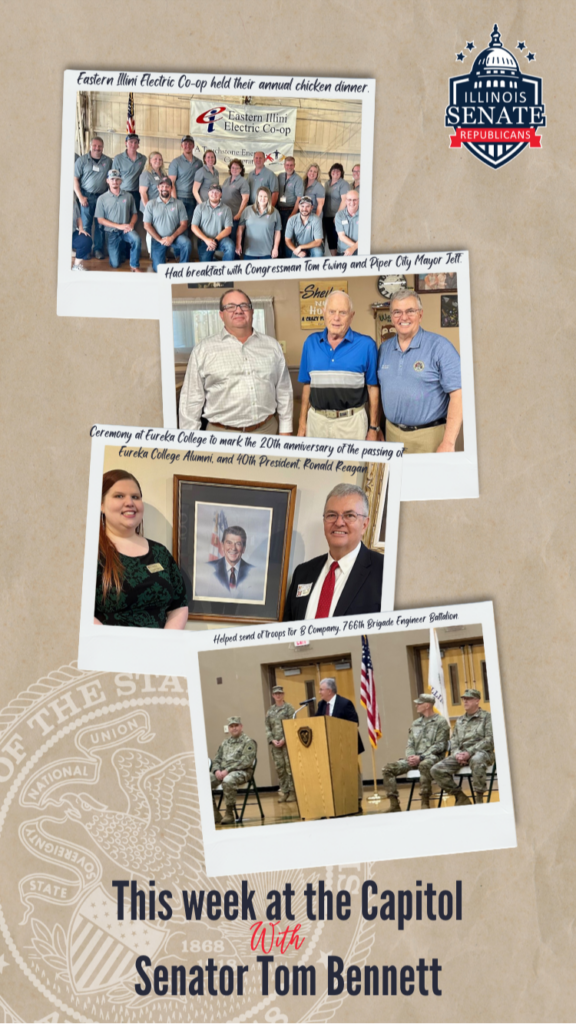
Supreme Court Declines to Take Up Gun Ban – For Now
In an order released July 2, the United States Supreme Court declined to take up a legal challenge to the state’s “assault weapon” ban but left the door open to hearing the case in the future.
Petitioners had requested that the nation’s highest court issue an injunction against the enforcement of the ban. The request followed conflicting rulings on multiple challenges to the law, including a temporary injunction issued by a judge in the Southern District of Illinois that was later thrown out by the 7th Circuit U.S. Court of Appeals, where a challenge is still pending.
The Supreme Court has declined to hear the case while that challenge is ongoing but reserved the right to take it up at a later date, noting, “…if the Seventh Circuit ultimately allows Illinois to ban America’s most common civilian rifle, we can – and should – review that decision once the cases reach a final judgment.” A justice added that, “The Court must not permit ‘the Seventh Circuit [to] relegat[e] the Second Amendment to a second-class right.”
Senator Bennett stated that he remains optimistic that the state’s ban will ultimately be found unconstitutional once the legal process has concluded. He opposed the ban in the Senate, viewing it as an unconstitutional overreach and an attack on the 2nd Amendment rights of law-abiding citizens.

Sen. Bennett’s Legislation Sparks Annual Job Demand Report to Strengthen Illinois’ Workforce
As of July 1st, the Illinois Board of Higher Education will annually release a comprehensive list of the most in-demand jobs in the state. This list is an outcome of legislation sponsored by State Senator Tom Bennett to help bridge the gap between education and the evolving workforce of Illinois.
“This new law represents a significant step forward in preparing our students for successful careers in a rapidly changing job market,” said Sen. Bennett. “By providing educators with valuable information on job trends, we empower them to make a real difference in their students’ lives and the economic health of our state.”
Senate Bill 2862, sponsored by Senator Bennett earlier this year, is a collaborative effort that will benefit educators and students by helping them make well-informed decisions about their futures, tailor their teaching strategies to equip students with the skills necessary for the most sought-after jobs, prioritize funding for programs that align with high-demand job sectors, and encourage stronger connections between schools and local businesses.

IDOT awarded $1.2 million to study express bus service between Bloomington-Normal and Peoria
Under a new announcement, the Illinois Department of Transportation (IDOT) has secured $1.2 million to assess the feasibility of implementing express bus service along Interstate 74, linking Bloomington-Normal with Peoria. The study is set to commence in late 2025 and is projected to span two years. It will investigate potential routes, service frequencies, schedules, and costs in connecting a network of cities, towns, businesses, and institutions.
This initiative is part of IDOT’s broader agenda to enhance economic growth, mobility, and livability in Illinois by modernizing and investing in various transportation modes. Although the specific route will be determined through the feasibility study, the proposed service is likely to follow the I-74 corridor from Peoria through Morton, Goodfield, and into Bloomington-Normal, with possible stops near Carlock, Congerville, Deer Creek, and Mayfair.
Key connection points include Illinois State University, Rivian, Illinois Wesleyan University, State Farm Insurance, Bradley University, OSF Healthcare, and multiple Caterpillar, Inc. manufacturing sites. The route would also benefit smaller industrial and agricultural employers along this corridor.
The proposed service could also link up in Normal with the recently enhanced high-speed Amtrak service, facilitating travel between Chicago and St. Louis, with intermediate stops in Joliet, Springfield, and Alton.
This funding, sourced from the Infrastructure Investment and Jobs Act’s Rebuilding American Infrastructure with Sustainability and Equity (RAISE) program, is part of a $1.8 billion package supporting 148 national projects. The RAISE program aims to fund projects with local and regional significance, balancing support between urban and rural areas and emphasizing regions with historical disadvantages or persistent poverty.
“Implementing this express bus service in Central Illinois will significantly enhance regional connectivity, boot job creation, and create economic opportunities,” said Sen. Bennett. “I am excited to support this initiative and look forward to the future development and improvement of our infrastructures.”

How much do we owe?
As of the time of this writing, the State of Illinois owes $1,440,448,177.81 to state vendors, including 4,335 pending vouchers. This figure represents the amount of bills submitted to the office of the Comptroller and still awaiting payment. It does not include debts that can only be estimated, such as our unfunded pension liability which is subject to a wide range of factors and has been estimated to be more than $139 billion. At the same time last year, the state’s accounts payable stood at a little less than $2 billion.

Did You Know?
July is one of the hottest months of the year. It is important to stay cool in the heat. As the temperature rises, it is important to stay safe while enjoying outdoor activities. Here are some simple tips to keep in mind.
- Drink plenty of water. Heat can lead to dehydration quicker than expected, so hydration is key!
- Plan outdoor activities early in the morning or late in the evening to help avoid peak temperatures.
- Take breaks or retreat indoors if you feel overheated.
- Wear a wide-brimmed hat or use an umbrella to provide shade from the sun.
- Be aware of heat-related illnesses like heat stroke and heat exhaustion.
This Week in the 53rd District
Working full-time to represent you!


